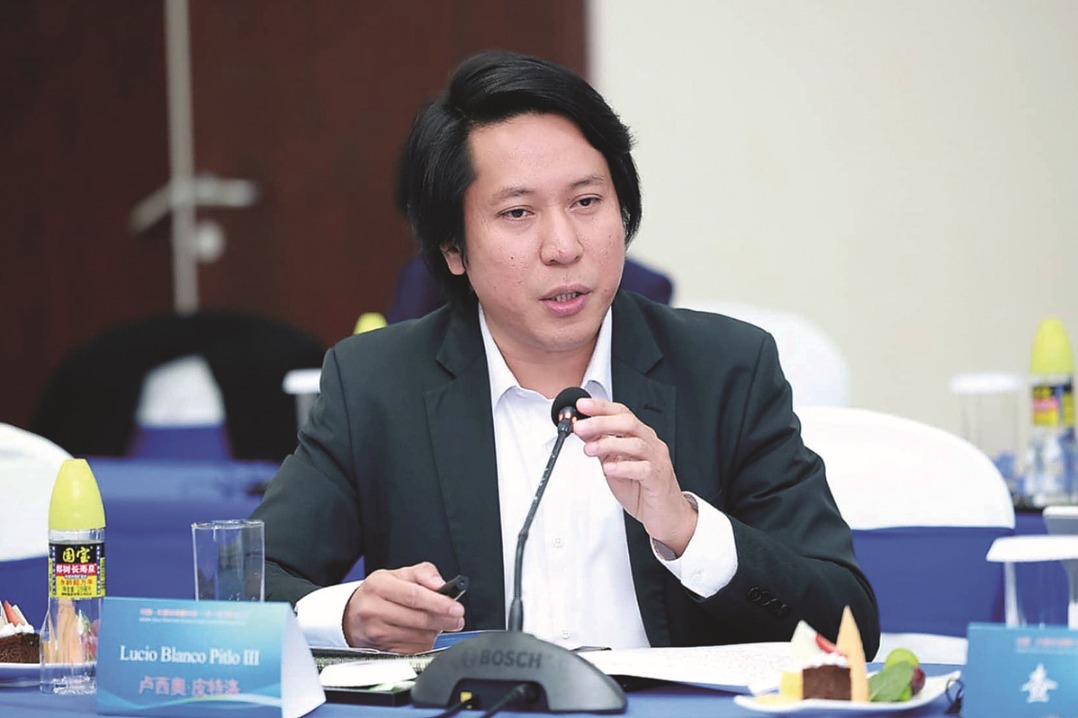'Bridging worlds': Introducing China's baijiu culture to Canada


To Wan Bing, baijiu is more than just a liquor.
"It's a symbol of cultural heritage, a tool for bridging worlds, and a calling," said Wan, president of the newly formed Chinese Liquor Culture Canada Association (CLCCA), who wants to share the rich history and artistry of Chinese baijiu with the world.
"My relationship with baijiu started when I was 30," Wan recalled. He had been working in Chengdu, Sichuan province, as a government official and was in charge of investigating local baijiu industries.
"I was shocked by the unique aroma of fermentation, the intricate craftsmanship and the cultural depth behind the baijiu. That experience made me see baijiu as more than just an industry — it was a cultural treasure," he told China Daily.
Wan's introduction to baijiu ignited a passion that landed him in the liquor industry just as China was undergoing rapid reforms.
"The sector changed from state-controlled distribution to dynamic market competition," he said. "I witnessed how adaptability and innovation became critical for survival."
He said baijiu's attraction lies not only in its taste but in its place in the culture. "It's a liquid symbol of China's 5,000 years of civilization."
That philosophy shaped Wan's approach to promoting baijiu internationally. In 2010, he founded a company dedicated to introducing baijiu to the Canadian market.
"At the time, Canadian awareness of baijiu was minimal," he said. "I saw an opportunity to share this unique aspect of Chinese culture and create connections through a shared appreciation of fine spirits."
The idea to establish the CLCCA came from Wan's experiences in the baijiu industry and in cultural diplomacy. "Many Canadians, including those in the Chinese diaspora, don't fully understand baijiu," he said.
His association, which was just established on Nov 23, aims to inform with education, tastings and storytelling.
"I wanted to create a place whereby we could showcase its uniqueness, but also as a cultural ambassador," he said. "We're sharing an experience. Baijiu is not just about taste; it's about the stories and traditions behind it.
"Through this association, we can introduce baijiu as part of a bigger narrative about Chinese culture," he said.
The association also wants to create economic opportunities for Chinese baijiu producers and introduce their brands into the Canadian market.
Wan plans to establish new trade routes and expand the global footprint of Chinese distilleries. "We're helping businesses thrive while promoting cultural heritage," he said.
"We are preparing a series of events for the Canadian audience: tasting, cultural festivals and educational workshops," he said.
A charity auction with vintage baijiu is one such upcoming event aimed at raising awareness of and appreciation for the craft of Chinese spirits.
Despite his enthusiasm, Wan realizes that baijiu faces an uphill battle in a market more familiar with wine and whiskey. "Cultural differences play a big role," he said.
"Baijiu's high alcohol content and unique flavor profile can be unfamiliar to Western consumers," he added.
The association is also looking at creative ways to introduce baijiu to younger, more international audiences.
"We plan modern packaging designs, collaborating with mixologists on creating baijiu-based cocktails, and using VR (virtual reality) to immerse people in the history of Chinese baijiu production," he said.
"We want to make baijiu relevant for today's world while honoring its roots," Wan said.
The association is also looking to use social media platforms like TikTok to reach younger consumers.
Regulatory hurdles are another barrier.
"Canada's strict liquor laws make it difficult for new products to enter the market," Wan said. "We need to educate not just consumers but also regulators about baijiu's cultural and commercial value."
The association is exploring matching baijiu with Western cuisine and touting its mixed-cocktail potential.
"We want to prove that baijiu can be adapted into different cultural contexts but still keep its identity," Wan said.
Wan also sees the rich heritage of baijiu as its greatest strength. "It's a drink that embodies harmony between people and nature," he said. "This philosophy resonates universally and can help baijiu find its place in global markets."
To Wan, the CLCCA represents the highest level of his relationship with baijiu. "It's not a career pursuit; it's some kind of personal calling," he said.
Wan also said that in Canada's multicultural society, "there is every possibility that interest in newer traditions exists".
"It could become a kind of cultural bridge, binding people through shared experience," he said. "Baijiu is not just a drink; it is a story of resilience, innovation and connection."

































